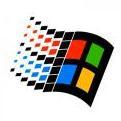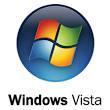Leaderboard
Popular Content
Showing content with the highest reputation on 02/03/2021 in all areas
-
February 2021. This is a continuation of this thread which was originally to discuss the use of Flash, Shockwave, and Java on Windows XP. Flash and Shockwave are now discontinued by Adobe, and the former has been disabled in current browser systems. Current Java 8 versions are no longer compatible with XP, and many later older versions which will run on XP have to be installed manually as the installer is incompatible. This thread is to discuss the problems of keeping these technologies alive on XP systems. For the replay of .SWF files, the standalone "projector" Flash player is still available from Adobe - https://www.adobe.com/support/flashplayer/debug_downloads.html#fp10 Wayback Machine archived Flash links Archive of all Flash versions - https://web.archive.org/web/20200630185339/https://helpx.adobe.com/flash-player/kb/archived-flash-player-versions.html Flash 32.0.0.371 archive (the last version without the January 2021 disabling time-bomb) - https://web.archive.org/web/20200630185943/https://fpdownload.macromedia.com/pub/flashplayer/installers/archive/fp_32.0.0.371_archive.zip This compressed archive contains all versions of 32.0.0.371, and is a 387 MB file. Java Links Java 8 Update 151 is the last that will install on Windows XP without any modification work - https://www.filepuma.com/download/java_runtime_environment_32bit_8.0.1510.12-16905/ The last version which works (but does not install) on XP without any file substitutions is Java 8 Update 241 - https://javadl.oracle.com/webapps/download/GetFile/1.8.0_241-b07/1f5b5a70bf22433b84d0e960903adac8/windows-i586/jre-8u241-windows-i586.tar.gz If Java is not already on the system, Update 151 will need to be installed first using its installer. Then the files from Update 241 will need to be extracted from the compressed archive above, and the 152 files replaced with the 241 files, and the registry edited to reflect this, as detailed in the thread.1 point
-
1 point
-
1 point
-
There was an addition to the firewall API that allows newer versions of simplewall to run. But it turns out many of the other functions in the file are outdated which made it not function properly so no release for that yet. I also made modified versions of dbghelp/dbgcore which can be used for newer applications like Code::Blocks that need them in their program folders. And then there's still the issue of ntoskrnl blocking modified ntdll and win32k. I seem to have detected the functions responsible for the checks of the image hashes (which will also be good for 7, 8.x and possibly even 10) but have yet to attempt a patch as I'm still quite busy.1 point
-
Update USB_FORMAT-57 and UEFI_MULTI-57 plus the Addon-agFM files Download: from GitHub USB_FORMAT-57 and UEFI_MULTI-57 Download File E = Encrypted Password = bootwimb Manual: VHD_WIMBOOT.pdf and Win10_Install.pdf - Update UEFI Grub2 - latest 2021-02-02 - Update UEFI Grub4dos (= Grub4efi Or G4E) - grub4dos-for_UEFI-2021-01-31.7z - Update Grub4dos - grub4dos-0.4.6a-2021-01-27.7z1 point
-
JFYI I was able to run Puppy Linux slacko64-7.0 from a folder on the root of U-BOOT partition. Procedure: Create Slacko64-7.0 folder on the root of U-BOOT partition. Download the ISO and extract to that folder, as a bare minimum only following files are required: fdrv_slacko64_7.0.sfs, initrd.gz, puppy_slacko64_7.0.sfs, vmlinuz and zdrv_slacko64_7.0.sfs (332 MB in total). This are the menu entries I used: For a folder (Slacko64-7.0) on the root of U-BOOT (FAT-32) partition on USB device Default KBD is en-US but can be changed on first boot; pkeys=es is a sample to set my Spanish KBD, delete it if unneeded. MBR grub4dos iftitle [if exist (hd0,0)/Slacko64-7.0/puppy_slacko64_7.0.sfs] Puppy Linux Slacko64-7.0 - (hd0,0)/Slacko64-7.0 kernel /Slacko64-7.0/vmlinuz pmedia=usbflash pdrv=U-BOOT psubdir=/Slacko64-7.0 pkeys=es pfix=fsck,fsckp initrd /Slacko64-7.0/initrd.gz Grub 2 menuentry "Puppy slacko64 7.0" { echo "Loading vmlinuz" linux /Slacko64-7.0/vmlinuz pmedia=usbflash pdrv=U-BOOT psubdir=/Slacko64-7.0 pkeys=es pfix=fsck,fsckp echo "Loading initrd.gz" initrd /Slacko64-7.0/initrd.gz } On first boot you are able to edit your settings, connect to your LAN, etc. when you turn off the OS you have the option to create a persistence file, if using default settings it will be slacko64save.4fs file, located into Slacko64-7.0 folder. NOTE: Every time you close the OS you are allow to save changes or not as you prefer. alacran1 point
-
But at this point IE 11 is becoming useless. Twitter no longer works and YouTube will be not supported soon (I'm pretty sure of that anyway) I think that Edge will maintain support for somewhat longer, I hope.1 point
-
The latest I think it's 372.70 but I'm using 372.54 with a gtx 1060 3gb and got it from the manufacturers website (asus) Didn't have enough time to play a lot of games but in minecraft and euro truck simulator 2 there are no problems (I don't think these games use directx so that's why they work well) There are known issues with directx games in terms of performance Also what motherboard are you using?1 point
-
I will definitely continue to use Windows 8.1. I think the Embedded version is supported for a few more months till 10/2023 if I remember it correctly. I will deploy these updates after EOL. Furthermore, I think Firefox will support 8.1 until 2023. At the end, they will probably move Windows 8.1 to Firefox ESR. However, we are already benefiting from a modern web right now and I think even when Browsers shut support, we wont get any HTML5 issues in near future. Edge will end support as soon as Chrome ends support. I have a bad gut feeling when it comes to Chrome. I think it will end Windows 7 this year and maybe 8.1 at the same time like they did with Windows XP/Vista. Internet Explorer will be the final supported browser, coming to an end at the EOL Date and patachble till 10/2023 with Embedded Updates. It will probably be the safest, but definitely not the most modern in 10/20231 point
-
I use Vista in a VM, so the host hardware doesn't matter so much (it runs fine on my i5-6700K this way). If I want to use it on real hardware, I have a 2.8 GHz P4 and a Dell Latitude D630 I can install it on, as well as numerous other machines. If there were an easy way to patch it so it runs trouble-free on newer hardware, that would be neat, if only so I can do it "because I can". c1 point
-
Weird. The KB Article seems to only refer to 32-bit (although it may have been edited as such, never trust MS to leave KB articles alone); but the Security Bulletin clearly identifies 64-bit as being affected as well. Methinks something is missing here.. EDIT: Ugh, the KB# is apparently different for x64. The Security Bulletin also says .NET4 is affected; there are probably individual updates for each .NET version affected on each architecture.1 point
-
It's on my machine, though just for a few days, and I've no indication of difficulty installing it. Generally, I find that about one update in six fails as "not applicable" to my system. Which I always find disconcerting, to be honest, though I ought to expect such rejections -- I've got an AMD chip as CPU so anything aimed an Intel-based system is going to pass me by. That said, the most common cause for a failing update is that the update has already been installed without being noticed. It's easy to lose track of what's what if you're dealing with numbers of up;dates, especially if you've recently installed an OS and had a couple hundred updates suddenly appear.1 point
-
OK, so I briefly tested Vista with every post-EOL Server 2008 update (except the Specre and Meltdown ones), and it ran pretty much fine. It felt a bit clunky, but I attribute that to a hardware failure, as shortly after I installed the updates, my PC's motherboard died :( So I now have to find some sort of Sandy/Ivy Bridge thing to replace it, at a price that isn't obscene (I remember when decent used motherboards could be had for ~$50 or less; what happened?!) so I can reuse my CPU. I do have a backup computer I cobbled together running an i7-900-something (soon to be upgraded to a Xeon X5680) and 18 GB RAM, so it's not like I'm stuck without a working desktop :) It's roughly equivalent architecturally to my 2009 Mac Pro (why not use that, you may ask? Well, it's wildfire season here in No. CA, and I want to keep my best computers packed safely in the car so they're ready to go if anything happens, again (I've already been evacuated twice :( ); It's a 40# hunk of aluminum that I *really* don't feel like lugging out of the house in an emergency (been there, done that)). c1 point
-
1 point
-
1 point
-
These are actually just regular updates to fix bugs in the .NET July Updates. I did not come across them from my regular sources, so good catching! I'll be adding them to the repository. These are just the Security and Quality Rollups of July 2018, and those are always superseeded by the newest ones available (in this case, the August ones, which I already have in the repository). Thank you so much. Just having people using the repo is enough motivation to keep it updated from month to month. If this makes it easier for people to stay on anything that is not W10, it's a victory1 point
-
@greenhillmaniac I've got a few more .NET security updates. KB4346407 .NET 4.6.1 from 8/10/2018 KB4346410 .NET 4.5.2 from 8/10/2018 KB4346743 .NET 2.0 from 7/31/2018 KB4340559 from 8/16/2018 (contains KB4339422 for .NET 2.0, KB4338417 for .NET 4.5.2, and KB4338420 for .NET 4.6.1) And I'll add my thanks to Ruan's. It's really really good to have something like your repository, which clearly separates Vista/Server 2008 gold from the chaff if other MS updates -- and I speak with the experience of installing two fresh Vista Ultimate systems in the last several months.1 point
-
Indeed, I am I've edited my post and added those updates to the repository. BTW, I wasn't sure if I should add the July 2017 Security Only .NET updates because of all the issues they caused, but I guess the August updates fixed all of the issues, so I'll add the updates aswell1 point
-
@greenhillmaniac Are you missing KB4339291 & KB4339854 in July's updates? https://support.microsoft.com/en-us/help/4339291/security-update-for-security-feature-bypass-vulnerability-in-windows https://www.catalog.update.microsoft.com/Search.aspx?q=KB4339291 https://support.microsoft.com/en-us/help/4339854/win32k-elevation-of-privilege-vulnerability-in-windows https://www.catalog.update.microsoft.com/Search.aspx?q=KB4339854 Edit: I forgot KB4340007 (.NET) Security Only update for .NET Framework 2.0 SP2, 3.0 SP2, 4.5.2, and 4.6 https://support.microsoft.com/en-us/help/4340007/security-only-update-for-net-framework-2-0-sp2-3-0-sp2-4-5-2-and-4-6-f https://www.catalog.update.microsoft.com/Search.aspx?q=KB4340007 ------------- Thanks again for keeping your repository updated :) .1 point
-
Indeed. Well, I'll try it out, and see what happens. I have a fully up to date and stable-as-a-rock Windows 7 install to fall back on if need be. c1 point
-
The only real issue I see is something that @NoelCbrought up in his analysis of installing Windows 8.1 updates. He is not so sure that skipping updates and installing later ones will produce a stable system environment. The Windows 8.1 and Server 2012 update for Spectre and Meltdown came in March of last year. My intention would have been to keep my system patched, and just skip the March update. I did pretty much the same thing with Vista. I installed the Server 2008 updates all the way through to August of this year, but I skipped the two updates I quoted above. Slight throughput degradation was becoming evident, and higher CPU usage and CPU fans were running while I was browsing. Also whenever I ran uTorrent v2.2.1, I could never close it. Even using Task Manager, you could never kill the task. I'd have to restart Vista completely. So, I uninstalled all of the updates back to March 2018, and I removed MSE (since I heard that it's larger definitions might be responsible for the high CPU usage). Well performance has improved SIGNIFICANTLY. Now for me, it might matter little because I'm almost ready to dump Vista and my old workstation, for a replacement machine with Windows 8. But even then, I only plan to update to a December 2017 date line (just to see if performance stays high). One one hand, I want to be able to patch my system (I don't want to stay at December 2017 forever), but I'm becoming unsure if skipping a month, then installing later patches will not lead to the instability I had recently with Vista. A lot to consider.1 point
-
@Jody ThorntonNoted. Thanks! To clarify my earlier post, I don't intend to have a cavalier attitude regarding security, it's just that the reality of the situation is that *every* device that has a CPU in it is affected in some way, and probably 80-90% of it will never be updated to protect against this vulnerability (which is mostly FUD, I've come to realize), so there's really not much we can do about it until new hardware comes out that has the flaws corrected, and that isn't projected to happen for at least a couple more years. In the meantime, we can patch our computers (to a point; older ones that can't run a patched OS will never be patched unless something extraordinary happens), but what about our cars? And our network routers? Some of the more sophisticated cars and routers use CPUs not unlike what we'd see in a smartphone, so they're all just as vulnerable, and none will likely receive any kind of patch for it. Does that mean they'll be hacked? Not likely, because the success rate of a Spectre/Meltdown attack is somewhat variable (particularly on older hardware), and one needs to have physical access to the system in question (to my knowledge; I could be mistaken). So does this mean we should forget about security? NO! We absolutely should continue patching things as usual, because there are innumerable other exploits that are potentially much, much more virulent, and must therefore be mitigated ASAP to prevent any data breaches or other such things from occurring. I just think that it may be a waste of time to worry about this particular exploit too much, because it is mostly academic and of limited value to most hackers (in my opinion). c1 point
-
@cc333, look in @greenhillmaniac's repository. They are listed. KB4089229 (Meltdown) KB4090450 (Spectre)1 point
-
Hahaha! Thank you! I am honored to be a member of this club!! :lol: :) So I guess I'll try skipping those updates... if I knew which ones they were, it'd be easier... My system has a modest i5-2500k, so it's not the fastest to begin with, and a 30% performance cut might be too much. People lived for 25 years with this vulnerability, to no effect. Now that we know it exists, it probably won't change anything because it's a fairly hard thing to exploit (there are many other ways a hacker could steal info that are *much* easier), plus, with older OSes, we have some obscurity to protect us. c1 point
-
CC333 asked "Is it possible to avoid installing those updates while still getting all the others?" Sure, and why not. So far Spectre and Meltdown and other Looming Terrors are primarily of interest to computer science students and working chip designers, rather than the rest of us. Vast hordes of Evial Miscreants out to ruin the PCs and lives of the rest of us haven't materialized yet, and I suspect that if/when they do appear, striking at the vulnerable central core of Vista users is not going to be the primary thing on their mind. So yes, you can skip those particular updates and things will probably go alright. Now maybe, just maybe, you want to dual boot between Vista and Win 10, or between Vista and Linux or something like that -- then you might want to have your system's firmware brought up to modern snuff. That said ... Y'know, at peak performance with a Sandy Bridge, you've got a 7-core processor running at 3.4 GHz. In the WORST WORST WORST circumstances, accepting all the Intel and Microsoft updates intended to cope with Spectre/Meltdown/etc. will cut 30% off your system performance. Which is in some ways dismaying, but in others ... you've got a ten year old chip, you know in advance it's not going to let you conquer the world, And yet by the standards of a few years before that -- 2006 say, when Vista was released to the world --- a 3 or 5 or 7 core computer running at 2.5 GHz would have been absolutely stunning. So. You want to play with Vista? Join the club! Welcome to the club! And don't worry too much about the clubhouse slipping its moorings and falling into all the nearby ravines.1 point
-
Hi All, I've dabbled with Vista off and on over the years since it's release, and I never really found it to be too bad, although I preferred XP and stuck with it until 2014, when I began using 7 more regularly. That being said, I have a Sandy Bridge PC I built here, and I got a copy of Vista Ultimate specifically for it that I'm planning to install. However, I'm concerned to read that the Spectre/Meltdown patches wreck its performance? Is it possible to avoid installing those updates while still getting all the others? Thanks, c1 point







